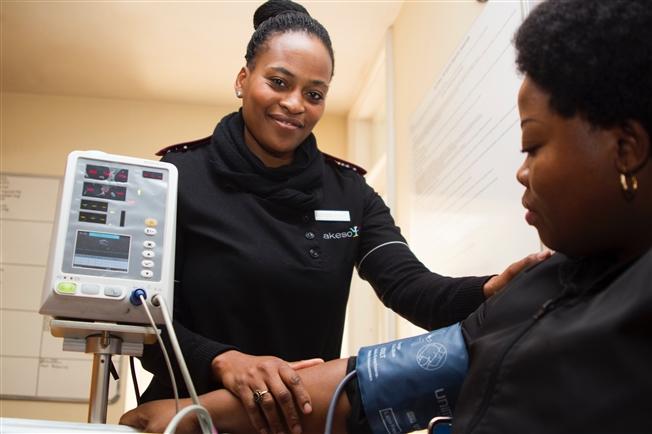African American diabetes prevention and treatment

When it comes to genetics, we inherit more than just our eye color or hair texture from our family—we also serve a higher risk of inheriting diseases and disorders like diabetes. In particular, African Americans, especially black women, are almost twice as likely to be diagnosed and inherit diabetes from family members than non-Hispanic whites. Alongside genetics, researchers believe that behavioral, environmental and socioeconomic factors also contribute to diabetes in the black community.
Why diabetes management matters
Though there are two forms of diabetes, the most common form is type 2, which affects the way the body processes food and occurs when blood glucose (or blood sugar) is too high. High blood glucose is a result of the body’s inability to make enough insulin, a hormone made by the pancreas, or the inability to use the insulin it makes effectively.
When too much glucose stays in the blood, not enough reaches individual cells. Excess glucose in the blood can cause health problems like heart disease, nerve damage, eye and dental issues, kidney disease and, in some cases, it can lead to amputation. For many African Americans, studies have found that issues like poverty, lack of access to health care and cultural attitudes and behaviors can affect the ability to prevent or manage diabetes, especially type 2 diabetes.
“For most people with diabetes, it’s about self-management education,” says Janet Wendle, director of the Diabetes Management Program at Main Line Health. Wendle, a registered nurse and certified diabetes educator, informs patients about the importance of taking care of their health by learning ways to control diabetes and providing prevention tips.
The program treats those with both forms of diabetes and includes consultations with a diabetes nurse specialist and dietitian, an initial 10-hour course (paid for by your insurance company) about effective management, community programs for diabetes management support and other resources.
Wendle notes that the program is less about receiving a diet plan from a nutritionist and more focused on educating people about how to live with the disease. “Although maintaining a healthy diet plays a big part, it’s more about understanding the physiology behind it and how to get rid of excess glucose,” she says.
How Main Line Health brings health management to you

“Meeting patients where they are is essential to providing quality care,” Wendle says. If patients need further observation, they are encouraged to pursue regular checkups with a physician, eye doctor, dentist, and/or foot doctor to stay up to date on risk or development of the disease.

The Deaver Wellness Farm, on the grounds of Lankenau’s campus, provides free organic fruits and vegetables to patients with limited access to fresh foods. Patients also receive food preparation classes and can sample their produce before taking the ingredients home. Wendle recommends integrating light exercise like biking, swimming or long walks/jogs for 20 minutes a day into your daily regimen.
Eating nutritious foods, monitoring blood and glucose levels and exercising often can help you control diabetes, while staying knowledgeable about the disease, receiving regular health and dental screenings, and living an active lifestyle can help in terms of prevention. Furthermore, knowing your family’s medical history can keep you ahead of the game when it comes to managing or preventing the disease.
To learn more about diabetes or to schedule an appointment with a specialist at Main Line Health, call 1.866.CALL.MLH (225.5654).
 Content you want, delivered to your inbox
Content you want, delivered to your inbox
Want to get the latest health and wellness articles delivered right to your inbox?
Subscribe to the Well Ahead Newsletter.
